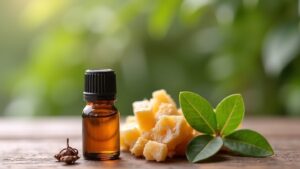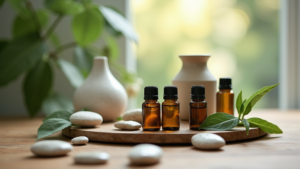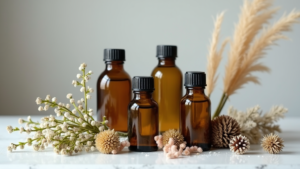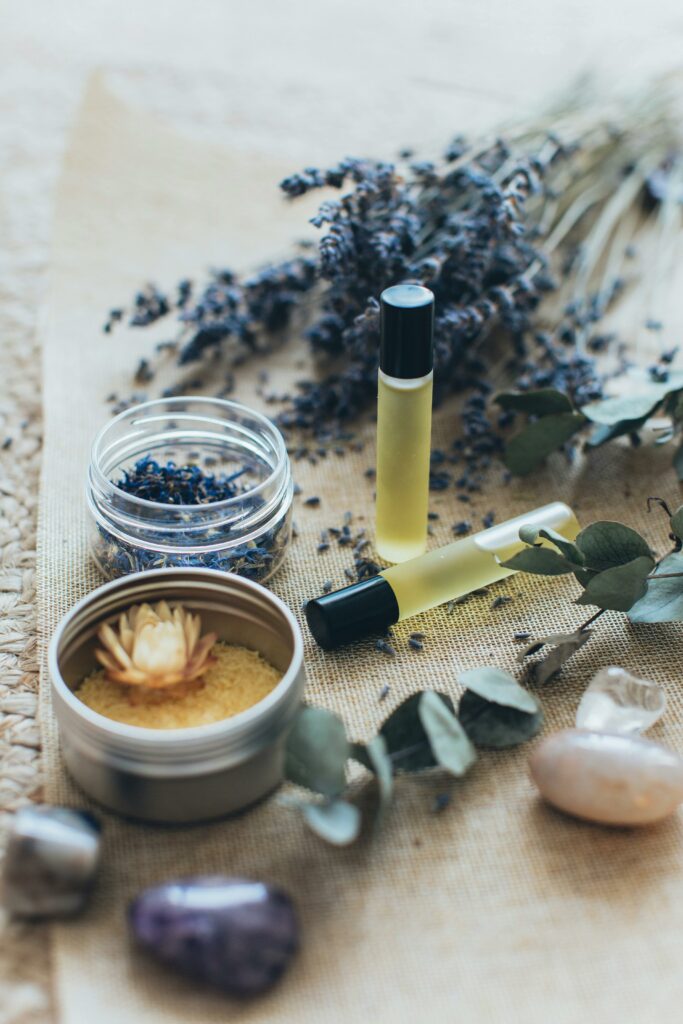
Cooking with essential oils has become increasingly popular in recent years. Essential oils are highly concentrated extracts from plants and herbs that have been used for medicinal and therapeutic purposes for centuries. These oils contain potent aromatic compounds that not only provide a delicious flavour to dishes but also offer numerous health benefits.
Using essential oils in cooking is a great way to incorporate the benefits of these powerful plant extracts into your diet. However, it’s important to note that not all essential oils are safe for ingestion, and not all are suitable for cooking. Always ensure that the oils you use are 100% pure and of high quality, and safe for consumption.
In this article, we will explore the various benefits of cooking with essential oils, the different ways you can use them in your cooking, and some tips for incorporating them into your recipes.
Contents
Benefits of cooking with essential oils
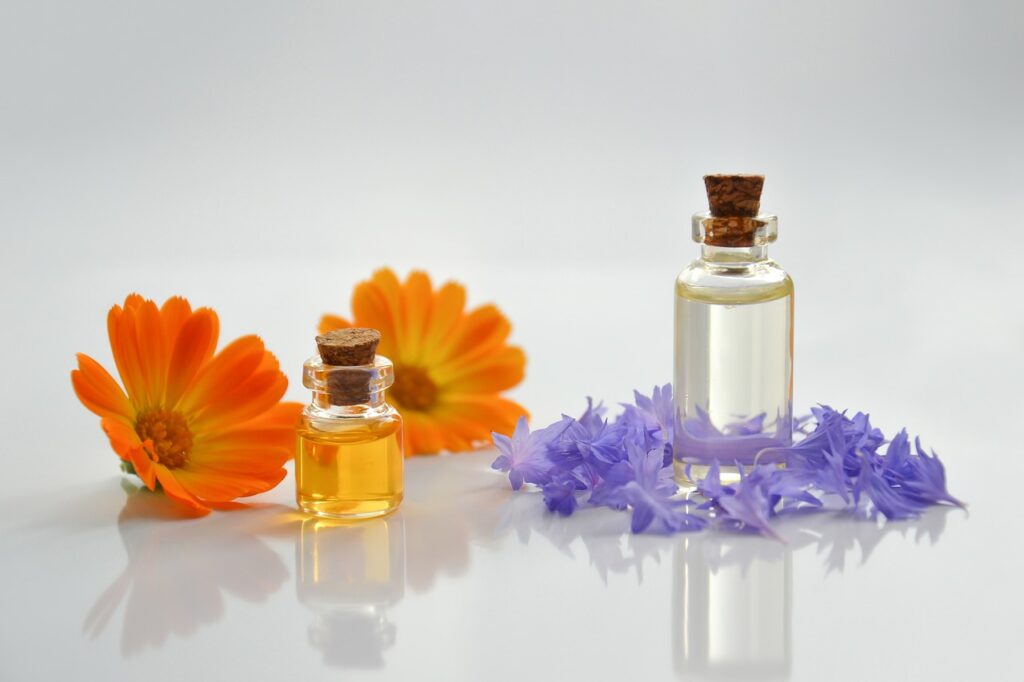
Using essential oils in cooking offers a range of benefits. Firstly, they provide a natural and healthy alternative to processed flavourings and additives. They are also a great way to add flavour to dishes without adding calories, as many essential oils are highly concentrated and a little goes a long way.
Additionally, essential oils can provide a range of health benefits, such as improving digestion, boosting the immune system, and reducing inflammation. Certain oils, such as peppermint, ginger, and cinnamon, are particularly beneficial for digestive issues and can help alleviate symptoms such as bloating, cramping, and nausea.
Ways to use essential oils in cooking.
There are several ways to use essential oils in cooking. Here are some of the most common methods:
- Add to drinks

Essential oils can be added to water, tea, or other beverages to add flavour and provide health benefits. For example, a drop of lemon or grapefruit oil can add a refreshing citrus flavour to water, while peppermint oil can provide a cooling and refreshing taste to tea.
- Use as a marinade.
Essential oils can be used as a marinade for meats, vegetables, and tofu. Simply mix a few drops of your chosen oil with olive oil and spices, and marinate the food for several hours before cooking. For example, a marinade of rosemary, lemon, and garlic oil can be used for chicken or fish, while a blend of basil, oregano, and thyme oil can be used for vegetables.
- Add to sauces and dressings
Essential oils can be added to sauces and dressings to provide a unique flavour and aroma. For example, a blend of basil, thyme, and oregano oil can be added to tomato sauce for pasta dishes, while lemon and honey oil can be used for salad dressings.
- Use in baking.
Essential oils can also be used in baking to add flavour to cakes, cookies, and other baked goods. For example, peppermint oil can be added to chocolate cake or brownies, while orange or lemon oil can be added to sugar cookies.
Tips for using essential oils in cooking
When using essential oils in cooking, it’s important to follow a few guidelines to ensure safety and effectiveness:
- Start small
Essential oils are highly concentrated, so a little goes a long way. When using them in cooking, start with a small amount and gradually add more as needed. It’s always easier to add more than to take away.
- Choose high-quality oils
Ensure that the oils you use are 100% pure and of high quality. Look for oils that are labelled as safe for ingestion and have been approved by regulatory bodies such as the FDA.
- Avoid heating oils
Essential oils can lose their flavour and therapeutic properties when heated, so it’s best to avoid adding them to dishes that will be cooked at high temperatures. Instead, add them to dishes after cooking, or use them in cold preparations such as salad dressings or marinades.
- Store properly
Essential oils should be stored in a cool, dark place, away from direct sunlight and heat. They should also be kept out of reach of children and pets.
- Experiment with different flavours
There are numerous essential oils available, each with its own unique flavour and aroma. Experiment with different oils to find the ones you like best, and don’t be afraid to mix and match flavours to create your own unique blends.
- Use caution with certain oils
Some essential oils can be toxic if ingested in large quantities, so it’s important to use caution when cooking with them. Oils such as wintergreen, camphor, and eucalyptus should be avoided altogether, while others, such as cinnamon and clove, should be used sparingly.
Examples of recipes using essential oils
Here are some examples of recipes using essential oils:
- Lemon and rosemary roasted chicken
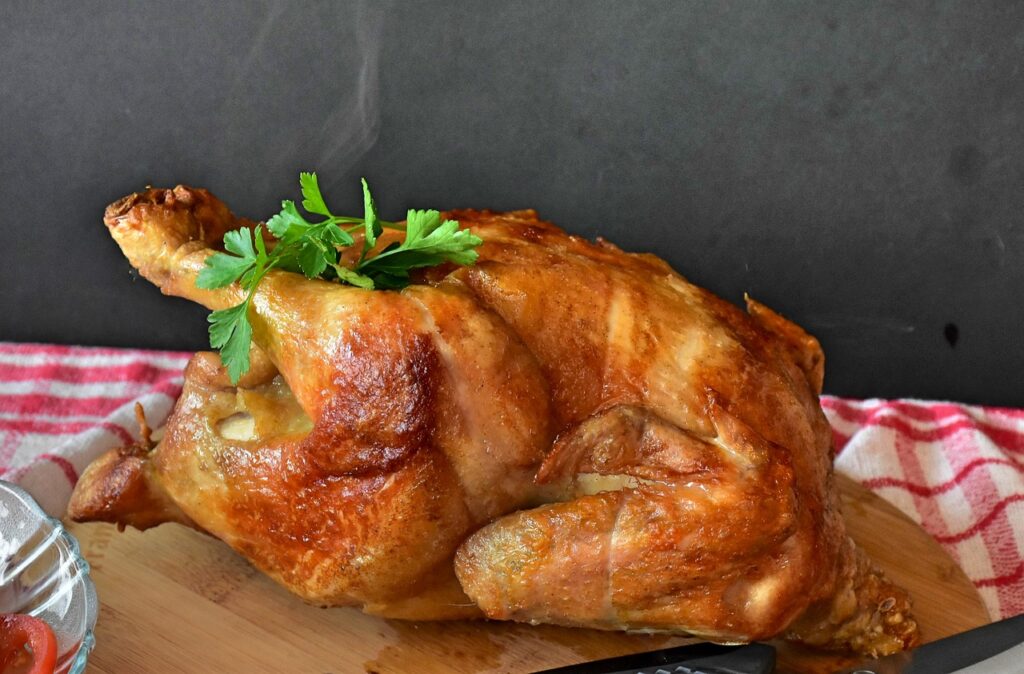
Ingredients:
- 1 whole chicken
- 1 lemon, sliced
- 2 sprigs of fresh rosemary
- 2 cloves garlic, minced
- 1 tbsp olive oil
- 1 drop of lemon essential oil
- 1 drop of rosemary essential oil
- Salt and pepper to taste
Instructions:
- Preheat the oven to 375°F.
- Rinse the chicken and pat dry with paper towels.
- Place the lemon slices and rosemary sprigs in the cavity of the chicken.
- In a small bowl, mix together the garlic, olive oil, and essential oils.
- Rub the oil mixture all over the chicken, and season with salt and pepper.
- Roast the chicken in the oven for 1-1/2 to 2 hours, or until the internal temperature reaches 165°F.
- Let the chicken rest for 10 minutes before carving and serving.
- Peppermint hot chocolate
Ingredients:
- 2 cups milk
- 2 tbsp cocoa powder
- 2 tbsp honey
- 1 drop of peppermint essential oil
- Whipped cream (optional)
Instructions:
- In a small saucepan, heat the milk over medium heat until it begins to steam.
- Whisk in the cocoa powder and honey until fully combined.
- Remove the pan from the heat and stir in the peppermint essential oil.
- Pour the hot chocolate into mugs and top with whipped cream if desired.
- Orange and fennel salad
Ingredients:
- 2 oranges, peeled and sliced
- 1 bulb fennel, thinly sliced
- 2 tbsp olive oil
- 1 tbsp white wine vinegar
- 1 drop of orange essential oil
- Salt and pepper to taste
Instructions:
- Arrange the orange slices and fennel on a serving platter.
- In a small bowl, whisk together the olive oil, white wine vinegar, and essential oil.
- Drizzle the dressing over the salad, and season with salt and pepper to taste.
Conclusion
Cooking with essential oils is a great way to add flavour to your dishes while also reaping the health benefits of these powerful plant extracts. With a little experimentation and caution, you can incorporate essential oils into your cooking in a safe and effective way. So, next time you’re in the kitchen, why not try adding a drop or two of your favourite oil to your recipe and see how it turns out?
